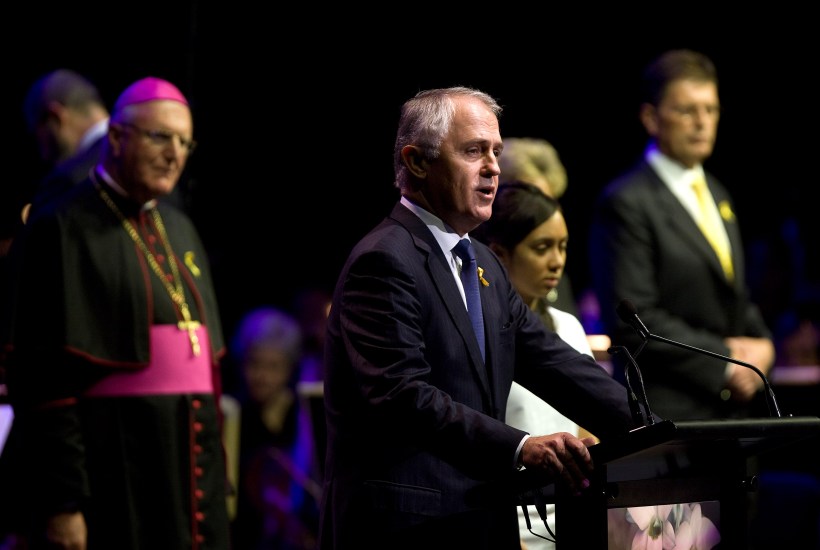It was interesting to learn from Greg Sheridan in The Weekend Australian that there are some religious people in the Parliament. An extract from his new book, God is Good for You, in Monday’s Australian identified five politicians with some details of their beliefs. Interestingly, their religious views were united by two inter-related factors; the belief in prayerfulness and the hope for a life after death. There is one relevant factor to all five in Sheridan’s report – not one of them thought the Bible was relevant to their political duties.
The difference between the God of the Bible and the gods of the ancient cities is their different sources; the difference between prophecy and poetry. The God of the Bible imposes moral obligations on believers, which, according to scholarship, are identical with the moral principles explained by the Greek philosophers. In other words, there is a coincidence between reason and revelation.
What do we expect from a religious politician? Well, nothing if we don’t know about it and Sheridan’s extract tells us very little. So what should religious politicians do with their faith? Generally speaking, Australians appreciate the separation of Church and State, provided it doesn’t mean the abolition of any holidays.
Our Constitution included a clause similar in effect to Article 1 of the United State Constitution. It assumes that the place of religion, that is, one’s relationship with God or one’s salvation, should be in the heart, mind and soul of man and not be commanded by a government as it is in Iran and China.
However, if the relationship between man and God is essentially private, our relationship with our fellows is public and moral or, in other words, political. A child can be taught by their Church how to have that private conversation with God, but that private conversation also presupposes that we exercise our moral obligations to our fellow man.
One only has to reflect momentarily on the campaign for ‘equal love’ last year in support of homosexual marriage to see how a lesson often heard from the pulpit that God is love was able to be turned into an endorsement of sexual conduct that is the antithesis of anything religious. No one asked how the teaching of self-control of the passions in the seventy-times-seven parable could be ignored when sexual conduct was considered.
One doesn’t need a lengthy oration on the wrath of God in order to convince people not to assault their fellow or to steal his property. The law does that. But all people must have a moral character, which makes them amenable to obey the good law. At a minimum the good citizen requires self-control, which is an expression of her obligation to other citizens.
Children once began to learn that there are moral obligations to others through the Church’s teaching of the Ten Commandments. Those commandments simply read describe our duties to God and our duties to man are in equal portions. Two further duties, however, were imposed on the Hebrew people in order to separate them from neighbouring tribes in what is now Israel.
The first relates how a family was told to leave a city where the men practised homosexuality. If read metaphorically, the story implies that those practices destroy the city. The reasons are obvious. The second story warns that people about child sacrifice practised by a neighbouring barbarian tribe. It too is destructive of a city for obvious reasons.
What should alarm our religious politicians is that both practices are popular in Australia.
Religious salvation may be a private matter, but our religious politicians ought not forget that they are also political leaders. Statesmanship is political leadership of the highest quality, one that identifies dangerous practices and protects the people from them. Leadership was recently shown in respect of bank fraud and child sexual abuse scandals, and it would be churlish to say it was only demonstrated once the prospect of some positive media was apparent.
The practices referred to above, however, will require not just leadership but a statesmanship that demonstrates great courage given that many in the media and entertainment industry vigorously support both of them.
While nothing can be done at the moment about the Marriage Act, the practice of child sacrifice is an affront to any civilised nation. It will be suggested by the less courageous that a Commonwealth law regulating child destruction would not legally succeed. Were it to succeed, however, it would be constitutionally paramount.
Yet, even if that less than courageous view is correct and the High Court were to hold invalid a Commonwealth law that regulated abortions, whether through the corporations power or the race power, or the external affairs power, the law would still stand; not impotent, but a silent commandment against the barbarous practice by which mothers sacrifice their own babies to the god of convenience.
That law would be a sign of the moral obligations of a good citizen and the provision of financial support for these women would be a sign of our moral obligation to them and their children.
But it will require great courage and some risk.
Got something to add? Join the discussion and comment below.
Got something to add? Join the discussion and comment below.
Get 10 issues for just $10
Subscribe to The Spectator Australia today for the next 10 magazine issues, plus full online access, for just $10.


























Comments
Don't miss out
Join the conversation with other Spectator Australia readers. Subscribe to leave a comment.
SUBSCRIBEAlready a subscriber? Log in